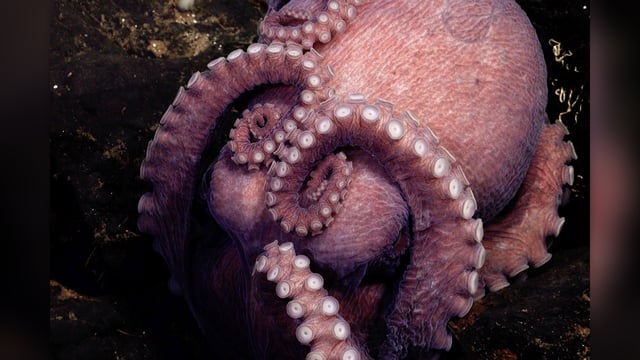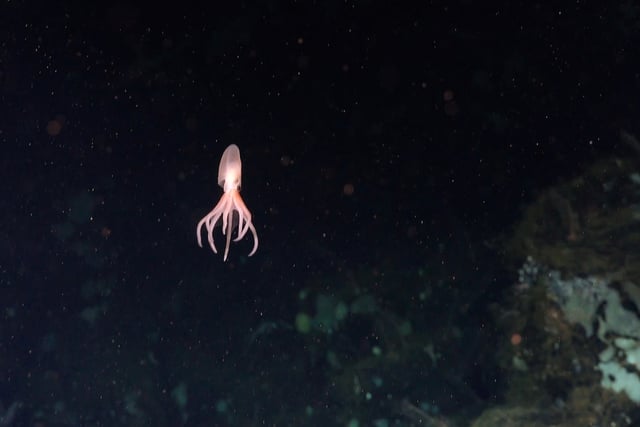Overview
- Four new species of deep-sea octopuses were discovered off the coast of Costa Rica during two expeditions in 2023.
- One of the newly identified species, nicknamed the 'Dorado octopus', is believed to have evolved to use warmth from hydrothermal vents to accelerate the incubation process of their eggs.
- The Dorado octopus is similar to the pearl octopus, a species found brooding eggs near hydrothermal vents off central California.
- The other three new species were found farther from the hydrothermal vents, with one of them being an enigma due to its unique features.
- The expeditions also identified a rare deep-sea skate nursery and three new hydrothermal springs.

